Video Archive of Faculty Advancement Series
Faculty Advancement Series
Performance Pedagogy Workshop: Using Performance as a Teaching Tool
Dr. Sharon Meagher - Philosophy and LA/W/S
Dr. Hank Willenbrink - English & Theatre
Thursday, February 27,
11:30am - 1:00pm in LSC 590
In this workshop, we will explore the ways that instructors in all disciplines can integrate performance as an instructional and research method in courses. Performance pedagogies encourage greater student participation and engagement in the classroom. We will explain and discuss these pedagogies, but we will also perform them and invite workshop participants to join us in participating in theater performance exercises that can be adapted to most any course. Meagher and Willenbrink have been working with performer, writer, and director Aaron Landsman in the creation of the Our City project and developed and practiced these pedagogies in their team-taught honors seminar, "The City as Theater."
PhD
University of Scranton
PhD Physics
University of Scranton
Ed.D. (Nursing)
University of Scranton
Ph.D. (Counseling and Human Services)
University of Scranton
Department of Management
Saint Joseph’s University
This presentation will discuss the ethical issues related to faculty and student disclosure in the business ethics classroom, although the discussion is applicable to virtually any discipline or topic. This will include, but not be limited to, the following issues concerning disclosure of ethical and unethical business experiences:
University of Scranton
After receiving a Development Stipend for an online course from the CTLE, Dr. Wilkerson modified an existing counseling course and successfully taught it in an online format. Please join Dr. Wilkerson as he will share his experiences regarding the course design, the approach he used with his online students and the takeaways after having taught online.
University of Scranton
After receiving a Development Stipend for an online course from the CTLE, Dr. Brennan modified an existing history course and successfully taught it in an online format. Please join Dr. Brennan as he will share his experiences regarding the course design, the approach he used with his online students and the takeaways after having taught online.
University of Scranton
After receiving a Teaching Enhancement Grant from the CTLE, Dr. Pavlick used the funds for a theology elective course (Christianity in Africa) to facilitate a more interdisciplinary offering for students by incorporating multi-media documentation of the students during their pilgrimage to Africa. Please join Dr. Pavlick as she will share the documentary film based on the students’ experiences.
“Using Academic Journals as Models for Student Writing”
Dr. Jennifer Vasquez (Mathematics)As academics, we write papers and submit them to journals. Then they are read by colleagues and vetted for accuracy and presentation. The papers are only published if they convince the referees and the editor that the results are correct, interesting and novel. The technique we shall describe is one we used in upper division courses that helped students develop both their reading and writing skills without sacrificing time dedicated to the subject.
Sorry, no video available.
“Faculty and ADA Compliance Issues”
Dr. Jeanne Kincaid, leading attorney on the ADA/Rehabilitation Act in higher education settingsHow does the Americans with Disabilities Act (ADA) affect our work in the classroom? Dr. Jeanne Kincaid, a consultant to colleges and universities on ADA issues, will share her expertise on this issue. Join us for a discussion as we attempt to understand how the requirements of the ADA mesh with our needs to maintain standards as we provide a quality educational experience.
Play video (Requires RealPlayer)
“Respect and Etiquette in the Classroom”
Dr. Marian Farrell & Dr. Anthony Ferzola (Faculty Liaisons to the CTLE)Join us for the first of our series of workshops on teaching effectiveness.
This workshop will help participants maintain classroom civility and offer suggestions on how to foster a respectful, collegial, learning environment.
Come and bring your own experiences pertaining to this topic to our workshop and enjoy an informal lunch and discussion with your colleagues.
Tuesday, September 21, 2010
Play video (Requires RealPlayer)

“Showcasing Teaching Enhancement Grants and Development Stipends for Online Courses”
Past recipients of these grants and stipends
The annual Teaching Enhancement Grants are awarded to instructors who wish to invest their time and resources to innovatively enhance their courses to promote student learning. Development Stipends for Online Courses support faculty members who nurture student learning through the creative use of ANGEL. This presentation will showcase the projects of two faculty members who have received these funds and have successfully completed their projects.
Thursday, September 30, 2010
Play video (Requires RealPlayer)
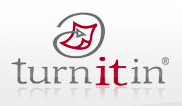
“Using Turnitin.com from within ANGEL”
Bonnie Oldham (Library),Dr. Susan Trussler (Econ/Finance)
There is a new service integration available between Turnitin.com and ANGEL!
If you have never used Turnitin.com, its Originality Checking component allows faculty to check students' work for improper citation or potential plagiarism by comparing it against three continually updated content bases: web pages, proprietary content from subscription-based publications, and previously submitted student papers.
If you are already familiar with Turnitin.com, the ANGEL integration makes the process seamless. You can now add a specifically designed Drop Box which will eliminate the need to navigate to the Turnitin.com Web site to create your assignment. Students can use this Drop Box to submit their papers. Both you and your students can view the originality report generated for each submitted paper.
Wednesday, March 24, 2010
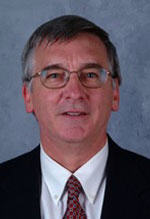
“The Effectiveness of Peer Tutoring on Student Achievement at the University Level”
Dr. Vincent G. Munley (Lehigh University)
Peer tutoring is a commonly employed strategy at universities in economic education as well as other disciplines where developing problem solving skills is a key element in mastering the subject matter. While there appears to be a general consensus that peer tutoring is a successful learning technique, and its practice is supported by multiple professional organizations, little direct evidence has been gathered about the quantitative magnitude of its effectiveness. In this presentation, Dr. Munley will examine the evidence at Lehigh University. The results suggest that the peer tutoring program has a positive and significant impact, though in order for the program to improve the expected letter grade, a student need participate in the program on average for about one hour per week over a fourteen-week semester.
Play video (Requires RealPlayer)
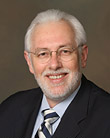
“Learning Sciences: Implications for Pedagogy and Research ”
Dr. Richard Duschl (Penn State)
Title: Aligning Practices, Philosophies and Pedagogies: New Science Education Models from the Learning Sciences.
Recent research synthesis reports from the National Research Council about learning, assessment, and teaching academic subjects call for new learning strategies and for the design of learning environments that align curriculum-instruction-assessment. This presentation will focus on the recommendations and conclusions from the science education report "Taking Science to School" and the companion practitioner volume "Ready, Set, Science!". New ideas about the role of science practices, learning progressions and learning performances will be examined and discussed.
Thursday, April 22, 2010
Play video (Requires RealPlayer)

“Interpreting and Using Your Course Evaluations for Teaching Development”
Dr. Marian Farrell & Dr. Anthony Ferzola (Faculty Liaisons to the CTLE)
Please join the CTLE for a workshop that focuses on how faculty can use course evaluation results to enhance their teaching skills. The presentation and discussion will look at how to interpret student feedback on multiple-choice questions and open-ended comments.
Tuesday, April 20, 2010
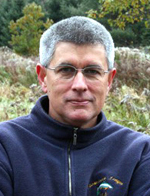
“How to Achieve Pedagogical Goals with Learning Technologies”
T. Mills Kelly, Ph.D.Center for History and New Media
George Mason University
T. Mills Kelly teaches in the History department and is also an associate director of George Mason's award winning Center for History and New Media. Read more...
Learning technologies are often presented to us as the solution to any teaching problem. This presentation will focus on specific ways that learning technologies can and cannot support learning goals in the undergraduate classroom. The presentation will discuss several projects, some of which are broad in scope and some of which focus on specific pedagogical problems in one instructor's classroom. Although the examples presented are rooted in history as a discipline, the lessons learned will be applicable to all disciplinary contexts.
Thursday, April 15, 2010
Play video (Requires RealPlayer)
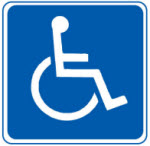
“Accommodations: What is Reasonable?”
Bob Liskowicz (Counseling Center), Nancy Dolan (Staff Attorney)
When students with disabilities (special needs) gain acceptance to the University of Scranton, they are entitled to receive “reasonable accommodations” so that they can fulfill the requirements of any program they wish to join. However, what does the term reasonable accommodation mean and does providing reasonable accommodations require that we adjust program standards? Psychologist, Bob Liskowicz, from the University Counseling Center will explain what reasonable accommodations mean to educators. Bob will be joined by Nancy Dolan, University Counsel, who will explain the University’s and instructors’ obligations concerning reasonable accommodation.
Wednesday, March 31, 2010

Using Active Learning Strategies
to Enhance Student Learning
Dr. André Oberlé (CTLE)
Tradition has it that Confucius said:
Show me, and I may remember.
Let me do it, and I will understand.
Modern educational research has proven what we always knew instinctively: Active students are better learners. This workshop examines how instructors can nurture student learning by incorporating active learning techniques into their lectures and seminars. They will see that even small modifications to the way material is treated in class can make a huge difference in the quality of student learning. Presented 17 November 2009

Improving Teaching Effectiveness and Student Learning Through Low-Stakes and Informal Writing Activities
Dr. Michael Reder (Connecticut College)Active learning is self-reflexive, process-oriented, and personal, and should provide students the opportunity to assess their own learning. Such learning also creates the chance for teachers to become learners themselves: about the material, about students, and about teaching & learning. How can we create such self-reflexive learning experiences? One simple and adaptable method is by using low-stakes, informal writing. This interactive workshop will serve as a primer to the benefits of using informal writing as a tool to enhance student learning and to the many options for designing such assignments. Such informal (often non-graded or evaluated) writing assignments can improve student learning across all levels and abilities, in a variety of courses (seminar, large lecture, lab/studio), and in any discipline.
Presented 20 October 2009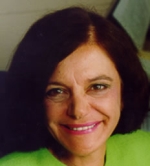
Teaching with the Case Method and
Problem-Based Learning
Dr. Linda Nilson (Clemson University)
Both the case method and problem-based learning (PBL) are proven powerful methods for engaging students in the subject matter, getting them to analyze situations, and giving them practice in applying the course material to solve real-world problems. These methods are well suited to disciplines that have a context for application or use. These include business, law, medicine, nursing, public health, all engineering specialties, education, philosophy (e.g., ethics), economics (e.g., macro, legal aspects), political science (e.g., policy analysis, public administration, constitutional law) sociology (e.g., social problems, criminal justice, organizations), psychology (e.g., clinical, abnormal, organizational behavior), biology (e.g., resource management, ecology, DNA testing, genetics), physics, chemistry, and research methods in general (e.g., hypothesis formulation, research study design). These methods have even been used in music history and art history.
Presented 16 September 2009
Copyright
Abigail Byman (University General Counsel), Bonnie Strohl (Library), and Eugeniu Grigorescu (CTLE)Play video (Requires RealPlayer)
An open discussion about the issues related to copyright, with special emphasis on works protected, length of copyright terms, exceptions and limitations, reproduction of others’ work, and fair use.
Presented 30 April 2009
Multiple Choice Tests
Eugeniu Grigorescu (CTLE)VIDEO COMING SOON (Requires RealPlayer)
Drafting and interpreting items that evaluate the knowledge and performance relevant to the learning targets assessed as the most versatile of all the objective types of items multiple-choice questions are employed often in educational assessment. Crafting good items with plausible distractors and homogenous alternatives requires skill and practice. An item analysis presents information which provides clues regarding difficulty, discrimination, and coverage of learning targets. This presentation provides theoretical approaches and practical examples of generating and interpreting multiple-choice questions.
Presented 31 March 2009
Policies and Programs for Dealing with Student Needs
Tom Smith (Counseling Center), Pat Popeck (Student Health Director), André Oberlé (CTLE Director), Larry Morton (Student Affairs), and Rosette Adera (Office of Equity and Diversity)Play video (Requires RealPlayer)
Presented 26 March 2009
Interpreting and Using Your Course Evaluations for Teaching Development
Dr. Marian Farrell & Dr. Anthony Ferzola (Faculty Liaisons to the CTLE)Play video (Requires RealPlayer)
Please join the CTLE for a workshop that focuses on how faculty can use course evaluation results to enhance their teaching skills. The presentation and discussion will look at how to interpret student feedback on multiple-choice questions and open-ended comments.
Presented 19 February 2009
Exploring Learning Styles
Dr. Antonio Calcagno (University of Western Ontario, Canada, formerly of the University of Scranton), and Dr. André Oberlé (CTLE).Play video (Requires RealPlayer)
Presented 4 December 2008
Issues in Protecting Research Participants
Dr. Margarete Zalon (Nursing)Play video (Requires RealPlayer)
Presented 20 November 2008
Writing Effective Course Syllabi
Dr. Marian Farrell & Dr. Anthony Ferzola (Faculty Liaisons to the CTLE)Play video (Requires RealPlayer)
This workshop is designed to help all faculty members learn how to design a syllabus so that it can serve as a contract, a record, and a learning tool for a course. Recommended syllabus components will also be discussed. The workshop will be useful to all: from new faculty designing their first few syllabi to the seasoned veteran looking to fne tune existing syllabi.
Presented 13 November 2008
First Year Faculty: Annual Self Report
Dr. Marian Farrell & Dr. Anthony Ferzola (Faculty Liaisons to the CTLE)Play video (Requires RealPlayer)
Presented 23 October 2008
Providing Effective Support for Students with Disabilities
Larry B. Silver, M.D. (Georgetown University)Play video (Requires RealPlayer)
It is a well known fact that when individuals with disabilities are given the proper support they can perform exceptionally well. Two examples that spring to mind immediately are Helen Keller and Stephen Hawkins. We are not talking here of giving people special privileges that will give them an advantage over others. Instead, we attempt to level the playing feld to give everyone an equal chance. This workshop will look at some of the challenges faced by individuals with special needs and examine what can be done to help these individuals reach their potential. In particular, we will examine how service providers such as the CTLE, counselors, advisors, and professors can work as a team to enhance the learning environment for students with special needs.
Presented 23 October 2008
Setting Objectives for Online Course Evaluations
Dr. Marian Farrell & Dr. Anthony Ferzola (Faculty Liaisons to the CTLE)VIDEO COMING SOON (Requires RealPlayer)
Course Evaluations can be an important tool for improving our teaching practice. In order for these evaluations to be useful tools, instructors must carefully set their goals and objectives by the deadline provided. By not doing so, you will signifcantly decrease the validity of the comparison process. This adversely affects all faculty members. Non-completion of objectives means that no objectives will appear for students to evaluate. Both the student online survey and your final course summary results will indicate that you did not identify any objectives.
Presented 21 October 2008
Showcasing Teaching Enhancement Grants and Development Stipends for Online Courses
Dr. Rebecca Spirito Dalgin (Counseling), Dr. Robert McKeage (Management/Marketing)Play video (Requires RealPlayer)
The annual Teaching Enhancement Grants are awarded to instructors who wish to invest their time and resources to innovatively enhance their courses to promote student learning. Development Stipends for Online Courses support faculty members who nurture student learning through the creative use of ANGEL. This presentation will showcase the projects of two faculty members who have received these funds and have successfully completed their projects.
Presented 30 September 2008
Fast and Fair Methods to Grade Writing… and More
Dr. Linda Nilson (Clemson University)PLAY PART 1 PLAY PART 2 PLAY PART 3
(Requires RealPlayer)
After taking this workshop, participants will be able to assess/grade the written work of their students (and more) quickly, fairly, objectively, effciently, and confdently using holistic grading methods. They will be able to develop and use rubrics that will provide valuable feedback as well as solid justifcations for the grades assigned. Download PowerPoint.
Presented 24 September 2008
The Role of Social Networking in Teaching and Learning
Dr. Barry Joe (Brock University)Young people communicate continuously. You see them texting and talking on their cell phones wherever you go; you see them deeply immersed in virtual worlds on the computer. This workshop will look at some of the aspects of social networking—such as blogs, wikis, Facebook, Google Docs—and explore how these media could be harnessed to enhance teaching and learning. Download PowerPoint
Presented 1 May 2007
Getting to What Matters Most in Teaching and Learning
Dr. Mathew Ouellett (University of Massachusetts)PLAY PART 1 PLAY PART 2 PLAY PARRT 3
(Requires RealPlayer)
This workshop focuses on preparing faculty to address issues related to teaching and learning in our diverse classrooms by focusing on what matters most. Through a series of brief writing exercises and small group discussions, we will explore pedagogical decisions and course designs useful in creating meaningful learning experiences for students.
Presented 20 March 2007
Internet 2
Dr. Andrew Zwicker (Princeton University)Play video (Requires RealPlayer)
Dr. Zwicker will demonstrate how courses—in this case physics—can be enhanced by creating an interactive learning atmosphere using Internet2. While this presentation deals with Physics, the techniques can easily be applied in most other disciplines
Presented 26 September 2006
Designing a Graphic Syllabus
Dr. Linda Nilson (Clemson University)Play video (Requires RealPlayer)
Students don’t always read a syllabus carefully, and even when they do, they may lack the scholarly background to grasp the “big picture” of the course organization that their instructor so judiciously developed. In this workshop, participants will learn how to make their course organization clear to students by designing a graphic syllabus—a diagram, flowchart, or concept map of the topical organization of a course—and they will explore the graphic syllabus is such a powerful learning tool.
Presented 22 September 2006
Project Portfolios: Enhancing Student Learning through Portfolio Work
Dr. André Oberlé (CTLE)PLAY PART 1 PLAY PART 2 (Requires RealPlayer)
Learning portfolios are an excellent tool for students to document their learning experience in courses and to reflect upon it. For instructors, they are a very effective assessment tool for student learning. Instructors who find the idea of portfolio assessment in their courses daunting or reject it on account of the size of their classes, might consider a project portfolio, a tool designed to document the learning experienced in a single project such as a term paper or report.
Presented 23 May 2006
Showcasing Teaching Enhancement Grant Projects
Dr. Dona Bauman (Education), Barry Wolf (Occupational Therapy), Eugeniu Grigorescu (CTLE)PLAY PART 1 PLAY PART 2 (Requires RealPlayer)
The annual Teaching Enhancement Grants are awarded to instructors who wish to invest their time and resources to innovatively enhance their courses to promote student learning. This presentation will showcase the projects of two faculty members.
Presented 27 April 2006
Working with Learning Outcomes
Dr. André Oberlé (CTLE)PLAY PART 1 PLAY PART 2 (Requires RealPlayer)
Clearly articulated learning outcomes lead to greater student satisfaction and effective curriculum design. They tell students what they will be able to do at the successful conclusion of your courses. This workshop will enable participants to investigate the role of learning outcomes in the curriculum and enable them to design learning outcomes for their courses and consider suitable assessment techniques.
Presented 28 March 2006
Concept Mapping: Powerful as a Cognitive and Assessment Tool
Eugeniu Grigorescu & Aileen McHale (CTLE)PLAY PART 1 PLAY PART 2 (Requires RealPlayer)
Concept Maps are an effective way of representing visually how a student understands a domain of knowledge. They can also be an effective means of exploring a given topic in the classroom. What we will explore: 1. Concept mapping as a pedagogical tool; 2. Its modalities of use for helping students visually organize their thinking and summarize subjects of study; and 3. Software tools that are available to facilitate this process.
Presented 21 March 2006
How Did I Get That Mark? Effective Assessment of Student Learning
Dr. André Oberlé (CTLE)PLAY PART 1 PLAY PART 2 PLAY PART 3
(Requires RealPlayer)
In this workshop, participants will look at the importance of designing appropriate and effective assessment of student learning. They will look at the importance of designing effective criteria, communicating them to their students and giving formative feedback that encourages student reflection and learning.
Presented 21 February 2006
The Students with Disabilities: Charting their Course for Academic Success
Dr. Loring Brinckerhoff (ETS)PLAY PART 1 PLAY PART 2 PLAY PART 3
(Requires RealPlayer)
Dr. Brinckerhoff is employed by Educational Testing Service (ETS) as the Director of the Office of Disability Policy. He also serves as a higher education and disability consultant to Recording for the Blind & Dyslexic (RFB&D). He is past-president of the Association on Higher Education and Disability (AHEAD) and former secretary of the National Joint Committee on Learning Disabilities. Dr. Brinckerhoff has authored over 25 articles, manuscripts, and co-authored one of the leading texts in the field, Postsecondary Education and Transition for Students with Learning Disabilities (PRO-ED). His areas of specialization are transition planning for high school students, programming for college students with learning disabilities, legal rights of adults with learning disabilities and program evaluation.
Presented 7 April 2005